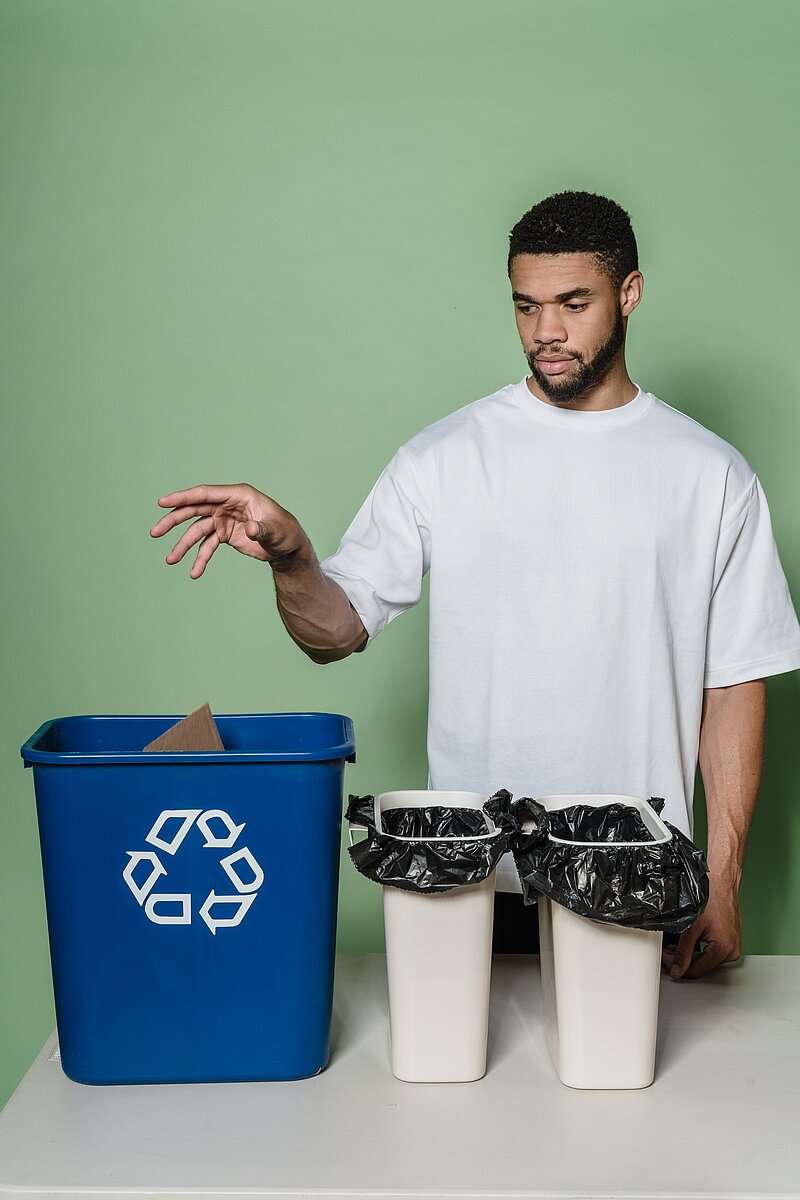Sustainable Waste Management at RWTH Aachen University
Efficient waste management plays a crucial role in any organization's sustainability strategy. Waste management involves not only the proper disposal of waste but also the identification of opportunities for waste reduction, reuse, and recycling. By implementing recycling programs and encouraging the reuse of materials, universities can conserve valuable resources such as paper, plastics, metals, and energy. The RWTH Aachen University takes this responsibility seriously and actively promotes the avoidance, reduction, and recycling of waste. We gained valuable insight into their waste management practices in an exclusive interview with RWTH's Service Center Waste Management.
How do you handle hazardous waste at RWTH?
Proper disposal of hazardous waste is a top priority at RWTH. The Service Center Waste Management (SCA) is an intermediate storage facility for hazardous and non-hazardous waste. Certified disposal facilities are contracted for proper disposal following the German Closed Substance Cycle Waste Management Act (KrWG). These take over the transport according to the ADR guidelines and confirm the final disposal by feedback in the electronic waste verification procedure (eANV). The abbreviation ADR is the "European Agreement Concerning the International Carriage of Dangerous Goods by Road”.
What measures are taken to avoid or reduce waste?
RWTH relies on a comprehensive waste prevention strategy to reduce waste. Various measures are taken, such as awareness campaigns for events like Sustainability Weeks or a Sustainability Network. In addition, the sustainability officers of the university institutions play an important role as multipliers. RWTH's purchasing department also provides guidance on sustainability in procurement applications by considering aspects such as social compatibility, environmental protection, energy efficiency, life cycle costs, and minimum ergonomic criteria.
How is the recycling of waste encouraged?
The recycling of waste is specifically promoted at RWTH. The SCA serves as a central collection point for various types of garbage. In compliance with legal framework conditions, debris such as paper and cardboard, glass, wood, foils, packaging material, scrap metal, batteries, electrical waste, and refrigerators are fed into a sustainable recycling process.
What challenges are you facing regarding waste management at RWTH?
The main challenge with waste separation is that RWTH is not a campus university. Its facilities are spread throughout Aachen and have very different site conditions, so finding a uniform solution for all sites is difficult. Problems arise, e.g., due to external input such as misdirected waste by passers-by, especially when containers are placed in publicly accessible areas. Also, a lack of space for additional large containers – especially in the city center –, insufficient quantities of one type of waste, and legal regulations are challenges we are dealing with. Paper and residual waste are already separated in all of our buildings. The next step is gradually introducing the separation of (plastic, composite materials, aluminium etc.) packaging. Pilot projects are already underway at some buildings. The projects are continuously evaluated to transfer the knowledge gained to other buildings.
How are employees and students made aware of effective waste separation and disposal?
RWTH emphasizes communicating and raising awareness among employees and students about effective waste separation and disposal. Procedures and regulations can be viewed anytime on the university's intranet. In addition, information signs on the waste containers provide information on the correct waste disposal as part of the "Gelbe Tonne" ("Yellow Bin") pilot project. Further information is available on the official RWTH sustainability homepage. The RWTH waste management officer is also known as a contact person, especially for questions regarding the disposal of novel or problematic waste.
Thanks to the RWTH waste management team for giving us these insights!


